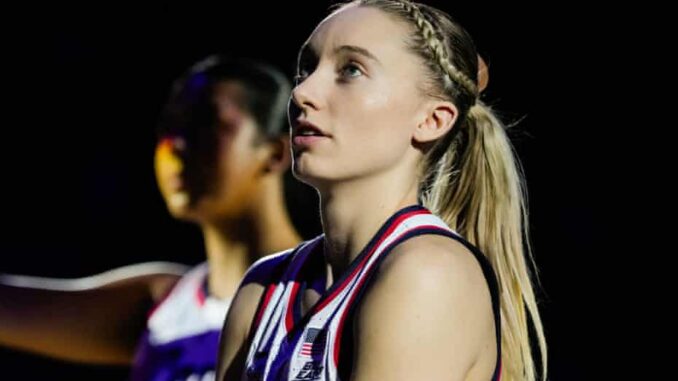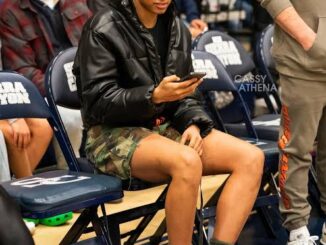
UConn’s Paige Bueckers, projected as the top pick in this year’s WNBA draft, is an extraordinary talent though she prefers not to be singled out. During last year’s NCAA Tournament, she emphasized the importance of sharing the spotlight to promote the game, recognizing stars like Caitlin Clark, JuJu Watkins, and Angel Reese rather than focusing on any one player.
While her humility is commendable, Bueckers’ achievements deserve recognition. In 2021, she became the first freshman to win the Wooden Award, Naismith Trophy, AP Player of the Year, and USBWA Player of the Year. She led UConn in scoring, assists, steals, and three-point shooting, helping her team reach the Final Four with a 28-2 record. However, injuries stalled her momentum she missed most of the 2021-22 season and then the entire 2022-23 season due to an ACL tear.
Now fully healthy, Bueckers is playing at an elite level, averaging nearly 20 points and leading her conference in assists. She’s also the only player across the NBA, WNBA, and college basketball with a 50/40/90 shooting line and a top-tier assist-to-turnover ratio. Her comeback is remarkable, yet she hasn’t received the same widespread attention as Clark, despite their similar skill sets.
One possible reason? Bueckers has never shied away from addressing social issues. At the 2021 ESPYs, after being named College Athlete of the Year, she used her platform to highlight the underrepresentation of Black women in sports media, calling for change and honoring Black female pioneers. While this speech was celebrated in Black communities, it seemed to alienate some of the same mainstream audience that once embraced her.
Additionally, the media’s portrayal of the Clark-Reese rivalry fueled racial tensions, with Clark often cast as the hero and Reese as the villain. Some fans latched onto Clark not just for her talent but for less noble reasons, while Bueckers, without a similar narrative, didn’t receive the same level of public adoration.
Off the court, Bueckers has consistently shown solidarity with her Black teammates, from cooking for her Muslim teammate during Ramadan to embracing a sisterhood within the team. However, this deep connection to Black culture and activism may have distanced her from certain demographics that championed Clark.
Regardless of the reasons, Bueckers’ talent and leadership are undeniable. If she leads UConn to a championship and still doesn’t receive the same level of recognition, it will be a reflection of deeper societal biases rather than her abilities on the court.



Be the first to comment